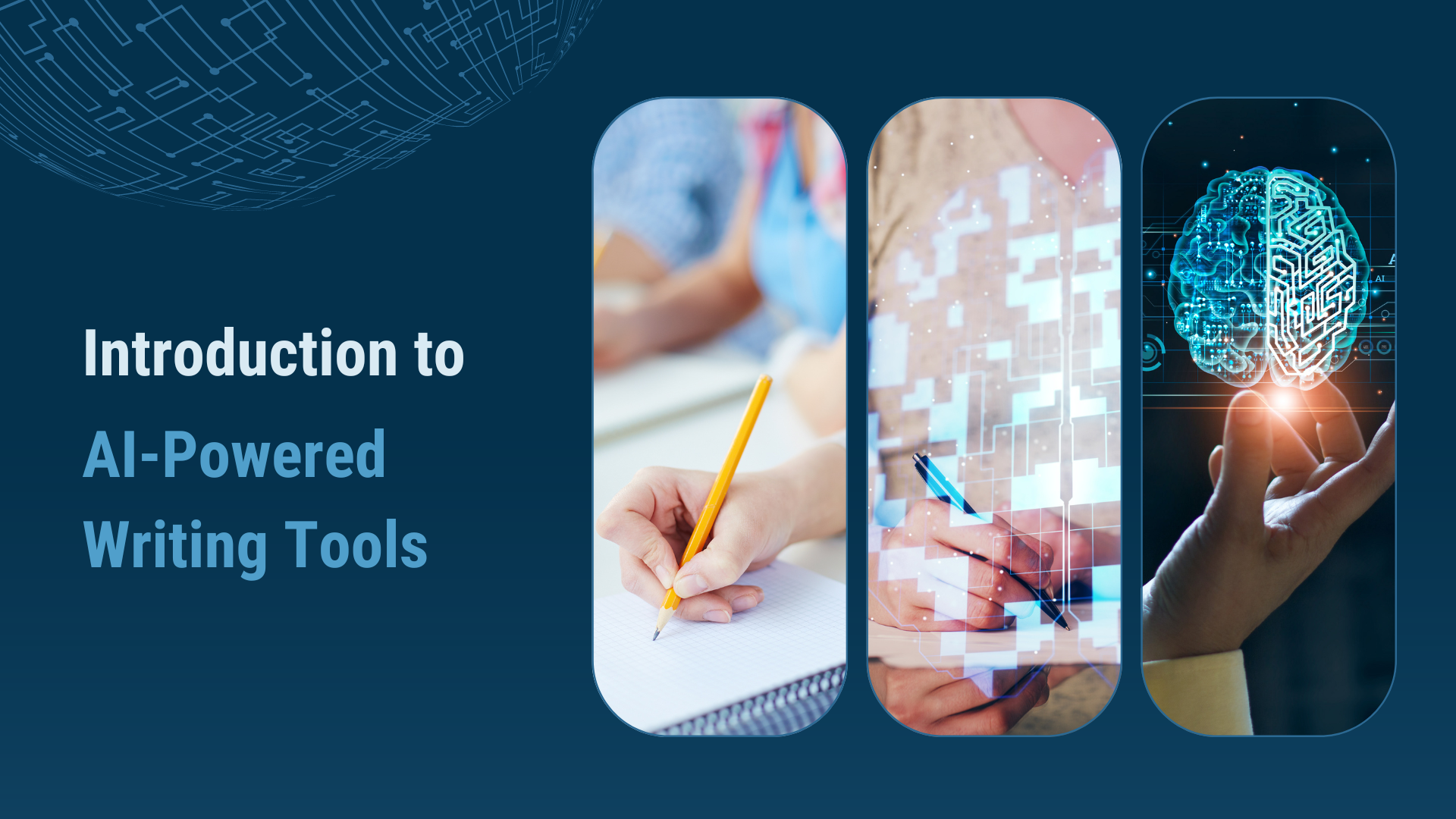Enhancing Academic Writing with AI: A New Era in Educational Technology
- 1 The Current State of Academic Writing
- 2 The Role of AI in Academic Writing
- 2.1 Overview of AI Technology and Its Capabilities:
- 2.2 Applications of AI in Language Processing and Writing Assistance:
- 2.3 Discussion on How AI Can Address Common Writing Challenges:
- 3 Introduction to AI-Powered Writing Tools
- 4 Implementation in Educational Settings
- 5 Future Trends and Developments of AI in Academic Writing
- 6 To Sum Up
Tackling academic writing as a part of education is crucial in developing competencies such as critical thinking, effective communication, and structured argumentation. Students’ capability to communicate effectively and meaningfully through written expression is not only of academic importance but also constitutes the basis for lifelong learning. The conventional methods of teaching academic writing might sometimes find themselves in a situation where they cannot adequately meet individual demands or facilitate improvement.
With technology progressing, Artificial Intelligence (AI) has been gaining ground as an indispensable factor in many industries, leading to process and outcome revolution. Education has a chance to change dramatically and even revolutionize how academic papers are written due to the implementation of AI. For AI essays, you can use an AI writing tool and AI generator, or you can use an AI essay writer with natural language processing features. They can be an essential and helpful resource for students and teachers, improving writing practice by resolving common issues and stimulating the advancement of abilities.
This piece examines the changing nature of academic writing within the scope of AI, illuminating AI’s role in building more advanced educational technology and lifting the bar on the quality of written communication in the academic field.
The Current State of Academic Writing
Academic writing looks like a giant puzzle with many missing pieces that make it hard for students and educators to accomplish their goals. The traditional techniques, however, sometimes cannot cope with the individuality of students and the variety of writing skills, as it often leads to the inconsistency of writing proficiency, the lack of coherence, and the inability to develop well-argued essays. It is not only students who have difficulties understanding the subtleties of communication and developing the necessary critical thinking skills that can take them to the cusp of scholarly writing.
Accurate communication is the key to academic writing because it often expresses complicated concepts unambiguously. Many students (in the process of) writing their papers will suffer from problems of expression, so their documents could be unclear or miss the point they want to deliver. In addition, critical thinking competence is crucial for academic writing; students must analyze and synthesize ideas and support their arguments. However, the traditional academic writing model often neglects these essential cognitive skills.
Consequently, there are a lot of hurdles that have to be overcome before effective methods can be developed to improve academic writing outcomes. The fusion of technology, notably artificial intelligence (AI), has become one of the promising solutions to curb these deficiencies. Students can access AI-powered tools to receive individualized support, feedback, and advice. That way, students’ communication and critical thinking skills will be enhanced, improving academic performance. In this dynamic space, it is evident that educational institutions need to utilize a novel method of work that will support students and educators in academic writing.
The Role of AI in Academic Writing
Overview of AI Technology and Its Capabilities:
- Natural Language Processing (NLP): AI’s capability to understand and interpret human language and create language that resembles humans helps AI be applied in advanced language-related applications.
- Machine Learning (ML): AI systems use algorithms to analyze patterns, learn from data, and make predictions to boost their adaptability to changing conditions and performance.
- Data Analytics: AI can process massive amounts of data to extract essential points. As a consequence, precision and situation understanding are improved.
- Semantic Understanding: AI models can decipher the underlying meaning of words and phrases, considering the context of the sentence. As a result, language processing becomes more comprehensive and context-sensitive.
Applications of AI in Language Processing and Writing Assistance:
AI becomes a catalyst for solving conventional writing obstacles, especially in business education. AI gives feedback to students based on their errors and focuses on their weaknesses in their writing. Regarding time management, AI-based writing assistants help sort ideas, reduce time spent, and ultimately improve productivity.
Revising with AI tools helps a lot, enabling students to keep improving their work until it is what they need. Using this cyclical process, one’s writing skills are enhanced each time. AI is also a platform for the creation of accessibility in education. It exploits everyone’s capabilities, regardless of their skill level or learning style. This guarantees that every student with their ability level can benefit from the writing support, which ultimately facilitates achieving a fairer and more egalitarian educational environment.
Discussion on How AI Can Address Common Writing Challenges:
- Individualized Feedback: AI offers personalized feedback by working on the precise areas and teaching students how to go about these areas.
- Time Management: AI-powered writing tools help authors arrange thoughts, simplify the writing process, and increase time efficiency.
- Enhanced Revision: AI tools, through their iterative revisions functionality, provide scaffolding for students to improve their work bit by bit.
- Accessibility: AI helps level the field by supporting students regardless of their diversity in skill and learning.
AI integration into academic writing is a new approach to ensuring students have good writing skills and can produce high-quality content. AI is a way to solve this problem through custom solutions that are effective and affordable and ultimately help to improve the quality of written work.
Introduction to AI-Powered Writing Tools
Integrating AI into writing tools has brought a new age characterized by speed and effectiveness in academic and professional writing. AI-powered writing tools are built on modern technologies like natural language processing (NLP) and machine learning (ML) that empower the users to do more than just correct grammar; they also enhance the content. They not only shorten the writing process but also help to improve the writing result, thus becoming irreplaceable tools in the field of teaching and practising.
Features and Functionalities of Popular AI Writing Assistants:
- Grammar and Style Correction: AI Writing Facilitators have excellent skills in detecting and correcting problems such as grammar and punctuation and providing an improved writing style.
- Plagiarism Detection: Plagiarism detection is one of the leading AI tools with compelling features. It auto-scans content against a vast database to ensure academic integrity.
- Automated Summarization: AI-driven writing assistants can create tight and appropriate summaries of lengthy reading materials that can be understood easily and quickly.
- Language Translation: Some modern AI writing software can precisely translate languages, which can help people communicate and collaborate with individuals of different linguistic backgrounds.
- Contextual Suggestions: These tools offer contextual recommendations on vocabulary, sentences, and overall unity, enabling users to construct more persuasive and unified writing.
Implementing AI-assisted writing devices constitutes a striking evolution toward more effective and accurate writing. These devices allow users to create well-written material with less effort. As they develop, these tools will likely gain a more significant status in written communication.
Implementation in Educational Settings
The deliberate design of AI tools for academic writing courses calls for strategic implementation to maximize their benefits. One primary way to do this would be to gradually include these instruments in writing courses and assignments. According to Forbes, 60% of educators use AI in their classrooms, which is a considerable number.
To ensure a balanced approach, the unique interaction between traditional teaching methods and AI-assisted assistance will be highlighted. Furthermore, encouraging a collaborative learning environment is helpful to the students because AI writing assistants can act in an active mode during learning.
To successfully integrate the program, it is necessary to design comprehensive training and support programs for educators and students. The training should be carried out in the functionalities of AI writing tools, practising them in the writing process, and interpreting AI-generated feedback. Continuous implementation of strategic mechanisms, such as workshops and help desks, increases the probability of the successful adoption of AI tools by teachers and students and thus contributes to improving academic writing skills through the proper usage of AI tools.
Future Trends and Developments of AI in Academic Writing
Exploration of emerging trends in AI technology for academic writing reveals exciting possibilities:
- Predictive Analytics: AI algorithms have the potential to identify writing challenges even before they occur, providing students with proactive advice on how to overcome these issues.
- Enhanced Natural Language Understanding: As AI’s language processing capacities grow, students will be able to receive more specific feedback, which will help address the fine-tuned details of written texts.
- Integration with Augmented Reality: Combining AI and augmented reality allows us to develop writing environments in which we can write in a new way, creating a completely new learning experience.
Given that AI capabilities will continue improving, the role of AI in academic writing is expected to grow more prominent in the future. AI will provide personalized assistance, tailoring it to students’ learning preferences. A new kind of collaboration between AI and human educators is forecasted, with synergy being the output.
The obviousness of these innovative advancements is also associated with transforming the conventional writing methodology and providing new means of practical learning for students. The future renders a dynamic and transformative terrain where AI becomes an inherent element in the academic writing process.
To Sum Up
As a result, the role of AI in academic writing marks the revolutionization of educational practices and the shift in paradigms. AI-writing tools open the door for many improvements, from individual attention to simplified revision strategies, which have been a deterrent to students and tutors. In conclusion, the prospect of better communication and critical thinking skills demonstrates the power of AI to improve academic performance.
The main focus should be on the fact that students, teachers and educational institutions will also benefit. Students receive the assistance they need, nurturing their talent and improving their self-esteem. The teachers see a better teaching methodology and the students’ enhanced performance. Such institutions will gain from the elevated academic standards and tech-savvy learning environment being cultivated.



















